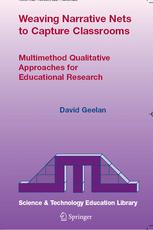

Most ebook files are in PDF format, so you can easily read them using various software such as Foxit Reader or directly on the Google Chrome browser.
Some ebook files are released by publishers in other formats such as .awz, .mobi, .epub, .fb2, etc. You may need to install specific software to read these formats on mobile/PC, such as Calibre.
Please read the tutorial at this link: https://ebookbell.com/faq
We offer FREE conversion to the popular formats you request; however, this may take some time. Therefore, right after payment, please email us, and we will try to provide the service as quickly as possible.
For some exceptional file formats or broken links (if any), please refrain from opening any disputes. Instead, email us first, and we will try to assist within a maximum of 6 hours.
EbookBell Team

4.1
80 reviewsIf you’re the kind of reader who usually skips the Preface (I am), you can certainly do that. It’s probably valuable, though, for me to spend a little time describing the structure of this book to orient you to the way the argument unfolds. My intention was to try to find the best possible blend of theory and practice. I believe there are plenty of excellent books describing the theoretical underpinnings of qualitative research in education (Denzin & Lincoln, 1994, 2000; Eisner, 1998; Guba & Lincoln, 1989; Lincoln & Guba, 1985). A number of those books are cited here, and their arguments summarized. There are also books that report qualitative studies using narrative methods (Melko, 1998; Harold, 2000; Wolcott, 1973). There are fewer books that focus on describing in detail how to conduct these studies (Anderson, Kerr & Nihlen, 1994; Van Manen, 1990; Wolcott, 1990) for an audience that is not already familiar with both the methods and the philosophical commitments that underpin qualitative research. This book is intended to do all of these things to some extent, or to refer you to other authors who I think do them well, but its original contribution is in using as a concrete example a particular research study that I completed. This allows me to reflect on the processes and practices, and particularly the choices, involved in qualitative classroom research, and to illustrate those reflections in a very practical way.